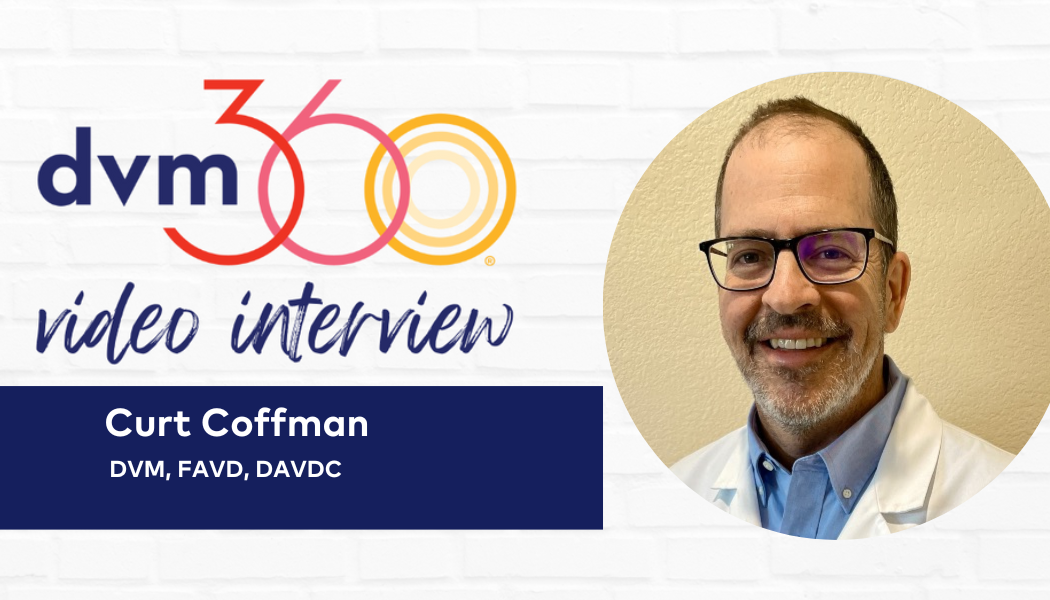Overtime with veterinary dentist Dr. Barden Greenfield
Hear straight-up answers to questions your colleagues had after one of Dr. Greenfield's CVC sessions on veterinary dentistry.

"Any questions?" (Shutterstock)At the end his CVC presentation “Normal dental radiography-you must know this before knowing abnormal," Barden Greenfield, DVM, DAVDC, fielded questions from the audience, which we captured on tape, including his exultation about the superb CVC attat the end of the Q&A period: “First of all, I'm going to tell you that this is the most educated group I've talked to. Every person's question is a great question.”
Here are the highlights in case these have come to your mind as well.
Q. Do pets need dental radiography every year?
Greenfield: In a small-breed pet-anything under about 20 kg-I would take radiographs every year, absolutely. Make it part of your dental program. Now when you have a bigger dog, you have fewer chances of having pathology. But I still say, “Do it.” Do it because if I skip, somebody's going to mess up. And it's all fun and games until there's apical disease. In cats, I would always take them because tooth resorption is always going be there-if you have tooth resorption, you're going to have more tooth resorption.”
Q. How much should we charge for radiographs?
Greenfield: The key is this-what is your comfort level? If you live in a rural area, and you want to practice good medicine, don't go crazy. Because when you have a machine, you're going to find stuff. So you may say, “I'm only going to charge $50, $75, $90, $100, whatever because I know that I'm going to see something.” You'd far rather have clients say, “You know what, I spent $50 on a film and I was able to take that tooth out for another $75 or $100,” versus your charging $150 for films and they say they can't afford treatment.
Q. Should you charge per radiograph?
Greenfield: I charge for a full-mouth set-and that's everything, including all my post-op images. I don't think it's good business to line item each image, because then you start thinking, “Gosh, we took 15 images and it's going to be such and such price.” Just make it a full-mouth set. Dog, cat, big, whatever-it all comes out in the laundry.
Q. What do you do if clients are resistant to tooth extractions?
Greenfield: I say, “If you leave disease in the mouth, you are continuing to put your dog in unnecessary pain. I'm your pet's ombudsman-I'm not yours, I'm your pet's.” If they are worried about economics, help them with payment plans. Tell them you have to get these teeth out or their pet will continue to be in pain. And tell them that you will bet the farm that after the teeth are out, they are going to notice a difference.
Q. Do you stage teeth cleaning?
Greenfield: Staging teeth cleaning is BS. There's only one stage, and that is either clean or not clean. It's a moral question really. I'm not going to compromise that patient anesthetically just for a cleaning that isn't going to work because the teeth are too far gone.
Q. Do you believe anesthesia-free cleanings are malpractice?
Greenfield: Yes, it's malpractice, just as much as a veterinarian who practices bad dentistry is malpractice. And that's why you're here is to learn not to do that. You cannot convince me that you can probe a tooth-all the teeth, especially the palatal root of a fourth upper-in a conscious pet. You physically cannot do it. I've seen their work and I've seen radiographs afterward, and it looks horrible. So if you're in an area that has anesthesia-free dentistry, it is your job to do it better than anyone else. And it's yours to get radiography as well and show them.
Q. What is the ideal order of a dental assessment-films first?
Greenfield: Usually yes … but sometimes we clean first and then get films. I always probe after cleaning; this is very important because you want to get all the calculus off.








